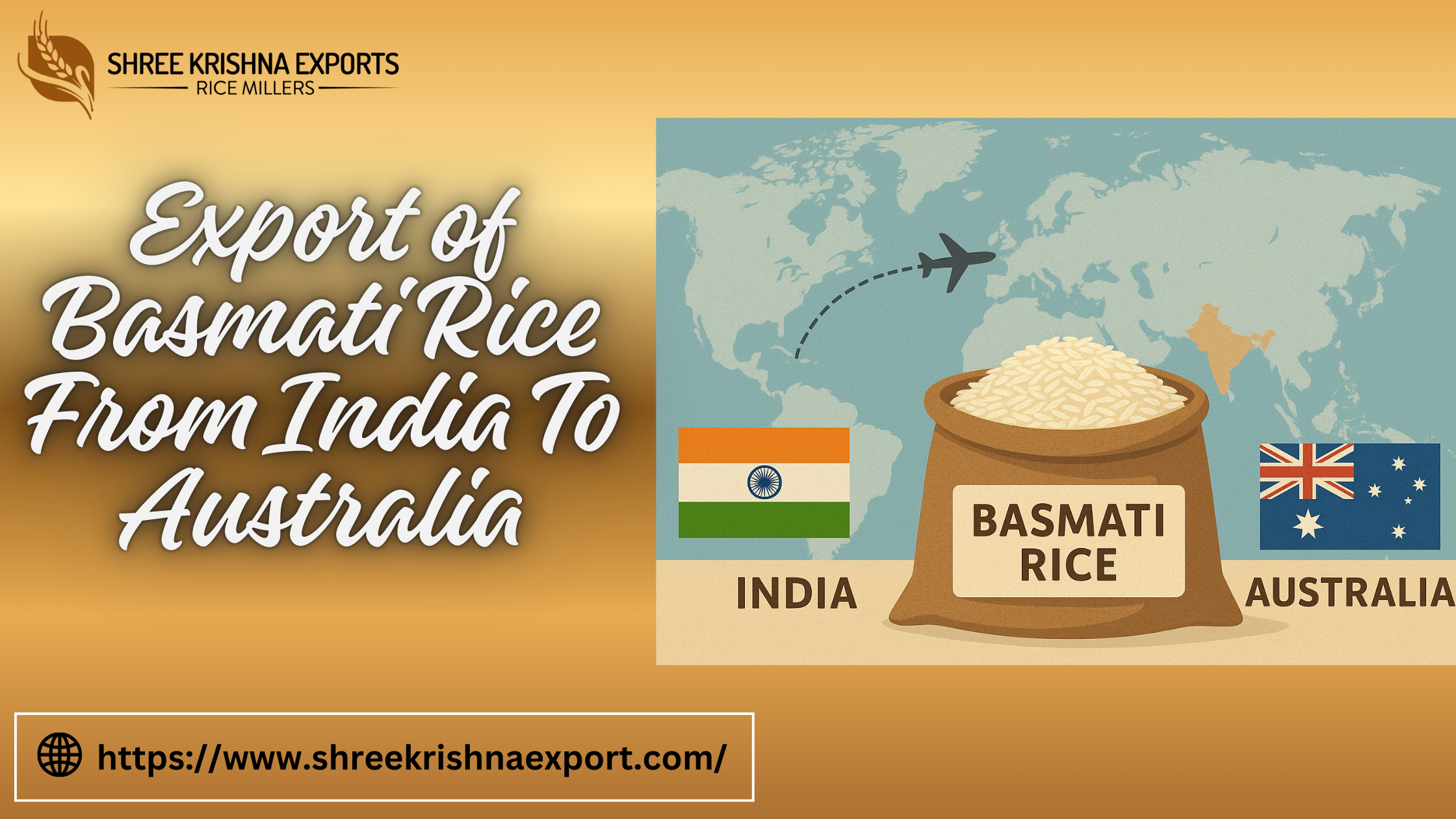Basmati rice is known for its exceptional taste and aroma. Growing in the Himalayan foothills, India is the dominant producer of basmati rice, with over 70% share in this domain. It has a long kernel size, which makes it retain moisture and is critical in lowering the glycemic index. Despite being a carbohydrate-rich food, it is slow to digest, unlike other rice varieties. It releases a floral scent and a nutty taste when cooked. With these outstanding properties, basmati rice is gaining traction in Australian dishes. Many locals in Australia eat dishes inspired by Middle Eastern and South Asian cuisines. Moreover, the growth of the Indian diaspora has also led to the export of basmati rice from India to Australia. It is not just used in occasional food delights but as a staple food as well. From rich and royal cuisines to a daily dose of sustained carbohydrate, it has a wide scope.
We at Shree Krishna Exports are the top brand when it comes to exporting basmati rice to Australia. Our decades of experience in rice production have helped us in establishing the supply chain and fulfilling the merging demand beyond borders. In this blog, we are diving into the key steps that we follow for exporting basmati rice.
Acquiring Licenses and Clearances
There are a number of necessary licenses that must be acquired and registrations that must be done. The mandatory licenses for the export of basmati rice from India to Australia are the Import Export Code (IEC) and the FSSAI. We are registered with APEDA for agricultural exports. For clearances, we meet Department of Agriculture, Fisheries, and Forestry (DAFF) standards and Australian Quarantine and Inspection Service (AQIS) regulations.
Packaging Compliance
We use suitable bag materials according to the net weight. Jute bag for bulk orders for stable and spill-free storage and transportation. Vacuum sealing preserves the freshness. All the bags are labelled with our company details, variant name, date of expiry, certifications, and nutritional information.
Documentation Process
The essential list of documents we maintain is the packing list, invoice, phytosanitary certificate, certificate of origin, bill of landing and fumigation certificate. In some cases, an export license is also shown. Other important documents like a letter of credit, bill of exchange and shipping bill are shown to the authorities.
Right Shipping Option
For the timely delivery of orders, we choose the right shipping option for logistics maintenance. For urgent shipments, air freight is preferred, while the usual shipment is done by sea. We have partnered with reliable transportation companies for assured delivery in due time.
Conclusion
Export of basmati rice from India to Australia is a profitable business because of the rising demand in the country. It is a flavorful, sustainable and affordable option for food consumption. With the advancement in technology, new variants of basmati rice have emerged, like rice that matures earlier, longer kernels, etc. At Shree Krishna Exports, we source and package the best varieties when exporting to Australia.

